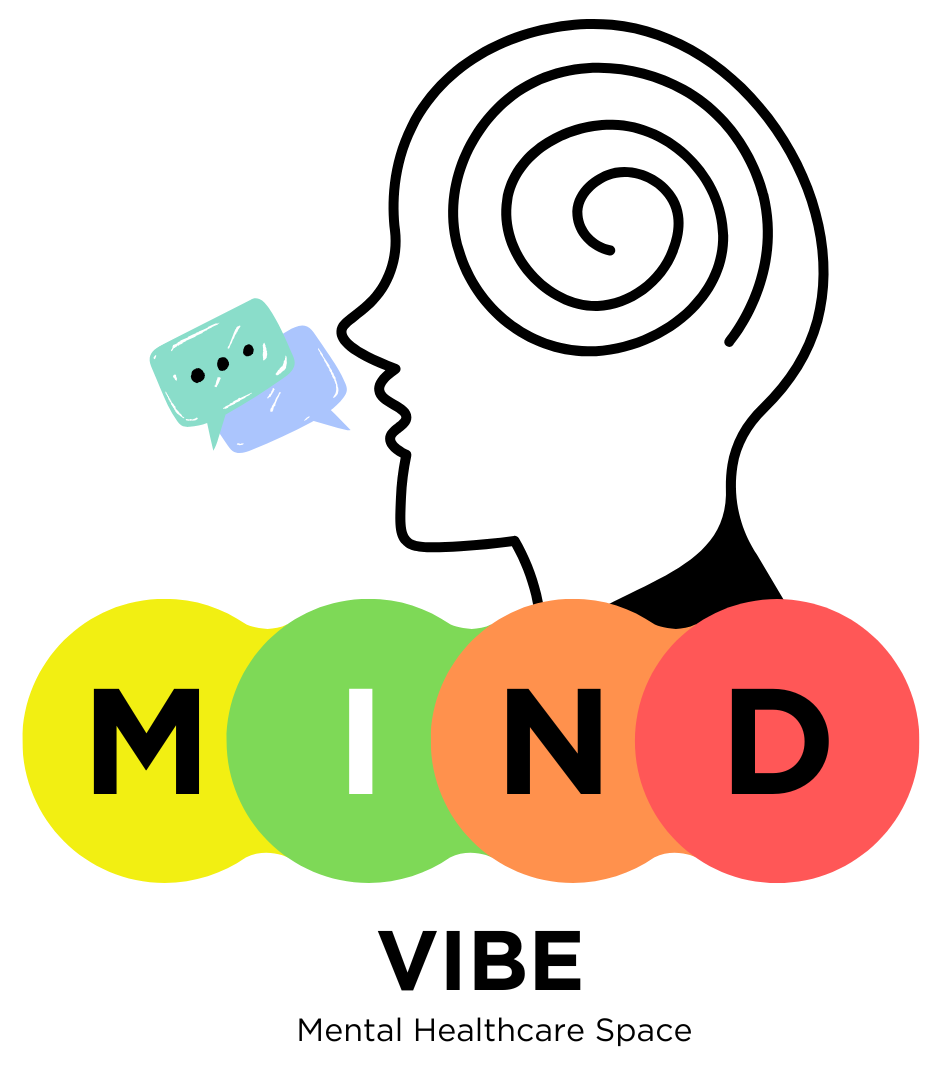By Shaeza Mariyem Paravakkal | Consultant Psychologist | Mind Vibe
Introduction
Stress is often described as a feeling of emotional or physical tension. But in psychological terms, it is far more complex. Behind the familiar unease lies a series of biological responses, cognitive processes, and emotional reactions that shape our perception of the world and influence our overall well-being.
This article explores the psychological foundations of stress using scientifically backed theories, helping individuals understand its impact and guiding them toward healthier coping mechanisms.
What is Stress?
Stress is the body’s adaptive response to any demand placed upon it. When we perceive a threat—physical, emotional, or psychological-our brain activates the hypothalamic-pituitary-adrenal (HPA) axis. This releases stress hormones such as cortisol and adrenaline, preparing the body for what is commonly known as the “fight, flight, or freeze” response.
While short-term stress (acute stress) can be helpful in certain situations, prolonged activation of this stress response system, known as chronic stress, can have significant consequences for mental and physical health.
The Psychology of Stress
Cognitive Appraisal Theory
According to Lazarus and Folkman (1984), stress is not merely about external events but how individuals interpret and appraise those events. This process, known as cognitive appraisal, determines whether a situation is perceived as threatening, challenging, or manageable.
Two key types of appraisal occur:
- Primary Appraisal: Evaluating the significance of a stressor.
- Secondary Appraisal: Assessing available coping resources.
When perceived demands outweigh coping resources, psychological stress is experienced.
Learned Helplessness
Martin Seligman’s theory of learned helplessness explains how individuals exposed to uncontrollable stressors over time may stop attempting to change their circumstances. This psychological state is linked to depression and anxiety, particularly in people facing chronic stress.
Coping Mechanisms
People manage stress through coping strategies, which may be:
- Problem-focused (e.g., planning, seeking solutions)
- Emotion-focused (e.g., relaxation, venting)
- Avoidant (e.g., denial, distraction)
The effectiveness of coping strategies varies, but psychological research supports the use of adaptive coping techniques for long-term emotional regulation.
Types of Stress
The American Psychological Association (APA) classifies stress into three primary types:
| Type of Stress | Description | Duration |
| Acute Stress | Immediate reaction to a specific challenge or event | Short-term |
| Episodic Acute Stress | Recurring episodes of stress due to repeated challenges | Medium-term |
| Chronic Stress | Persistent stress resulting from long-term situations | Long-term |
Each type can have different implications for mental health, making it essential to identify the form of stress one is experiencing.
The Impact of Stress on the Brain
Chronic stress affects multiple brain regions:
- Amygdala: Becomes hyperactive, increasing fear and emotional reactivity.
- Prefrontal Cortex: Function is impaired, reducing decision-making and impulse control.
- Hippocampus: Shrinks under prolonged cortisol exposure, impairing memory and learning.
Neuroscience confirms that consistent stress alters brain structure and function. Fortunately, these changes can often be reversed through therapy and self-care.
Recognizing the Symptoms of Stress
Emotional
- Mood swings, irritability, feelings of helplessness
Cognitive
- Difficulty concentrating, memory problems, overthinking
Physical
- Headaches, sleep disturbances, fatigue
Behavioral
- Withdrawal, unhealthy eating patterns, procrastination
Awareness is the first step toward recovery. Often, individuals normalize their stress levels without realizing the toll it is taking.
Evidence-Based Tools for Managing Stress
As a therapist, I recommend the following scientifically supported interventions:
- Cognitive Behavioral Therapy (CBT): Identifies and reframes maladaptive thought patterns contributing to stress.
- Mindfulness-Based Stress Reduction (MBSR): Cultivates present-moment awareness and lowers stress reactivity.
- Progressive Muscle Relaxation (PMR): A physical relaxation technique proven to reduce somatic symptoms of stress.
- Psychoeducation: Learning about stress can itself be therapeutic, empowering individuals to regain a sense of control.
Therapy offers a safe space to explore one’s experiences and learn sustainable coping techniques.
1. Cognitive Behavioral Therapy (CBT) Tips for Managing Stress
Goal: Reframe negative thought patterns that trigger or worsen stress.
Practical Tips:
- Identify Automatic Thoughts:
Notice thoughts like “I can’t handle this” or “Something bad will happen.” Write them down. - Challenge the Thought:
Ask:- “Is this 100% true?”
- “What evidence do I have for and against it?”
- “What would I tell a friend in the same situation?”
- Use Rational Alternatives:
Replace irrational thoughts with balanced ones.
Example: Change “I’m going to fail” to “I’m doing my best, and that’s enough for now.” - Use the Thought Record Technique:
Maintain a daily log with columns for:
Situation | Thought | Emotion | Evidence | Alternative Thought
2. Mindfulness-Based Stress Reduction (MBSR) Tips
Goal: Increase present-moment awareness and reduce overthinking.
Practical Tips:
- 5-4-3-2-1 Grounding Technique:
Focus on your surroundings:- 5 things you can see
- 4 things you can touch
- 3 things you can hear
- 2 things you can smell
- 1 thing you can taste or are grateful for
- Mindful Breathing:
Sit quietly, place one hand on your chest and the other on your belly. Inhale slowly for 4 counts, hold for 2, and exhale for 6. Focus only on your breath. - Mindful Walking:
Take a slow walk and notice the sensation of your feet touching the ground, the air around you, and sounds nearby. Stay fully present with each step. - Practice the STOP Technique:
- S: Stop what you’re doing
- T: Take a breath
- O: Observe your thoughts, emotions, body
- P: Proceed with awareness
3. Progressive Muscle Relaxation (PMR) Tips
Goal: Release physical tension held in the body due to stress.
Practical Tips:
- Start from Toes to Head:
Sit or lie down comfortably. Begin with your feet and work upward. Tense each muscle group for 5 seconds, then release for 10 seconds. - Muscle Groups to Focus On:
- Feet and calves
- Thighs and hips
- Stomach and lower back
- Chest and upper back
- Hands and arms
- Shoulders, neck, and jaw
- Forehead and eyes
- Key Points:
- Always breathe deeply and slowly during the practice.
- Notice the difference between tension and relaxation.
- Practice Duration:
10–15 minutes a day can significantly reduce physical symptoms of stress.
4. Psychoeducation Tips
Goal: Understand how stress works so that you feel empowered to manage it.
Practical Tips:
- Know the Stress Response:
Learn that stress is a biological survival mechanism. It is not a personal failure but a natural reaction to perceived threat or overload. - Differentiate Types of Stress:
Understand the difference between:- Acute Stress: Temporary and manageable
- Chronic Stress: Long-term, needs intervention
- Eustress: Positive stress (e.g., during challenges or new experiences)
- Track Your Triggers:
Keep a stress diary:
Note what causes your stress, how you react, and what helps you feel better. - Empower Yourself Through Knowledge:
Knowing how your brain, hormones, and body respond under stress can help reduce fear and self-blame. The more you understand, the more control you gain.
Daily Strategies for Mental Wellness
- Maintain a structured daily routine
- Set realistic goals and break tasks into manageable steps
- Limit caffeine and screen time before bed
- Engage in physical activity or mindful movement
- Practice grounding exercises during moments of overwhelm
Consistency is more important than intensity. Small, repeated actions lead to long-term change.
Final Thoughts from the Therapist
Stress is not a sign of weakness. It is a biological signal that something needs attention. When ignored, it can manifest in ways that interfere with personal, academic, and professional life. But when addressed, it can become a gateway to resilience and personal growth.
At Mind Vibe, my mission is to help you decode the messages your mind and body are sending, and work with you to build strategies for healing. If you are feeling overwhelmed or emotionally exhausted, know that support is just a step away.
Schedule a Session
If this article resonates with you and you’re ready to take the next step in your mental wellness journey, I invite you to schedule a one-on-one consultation.

